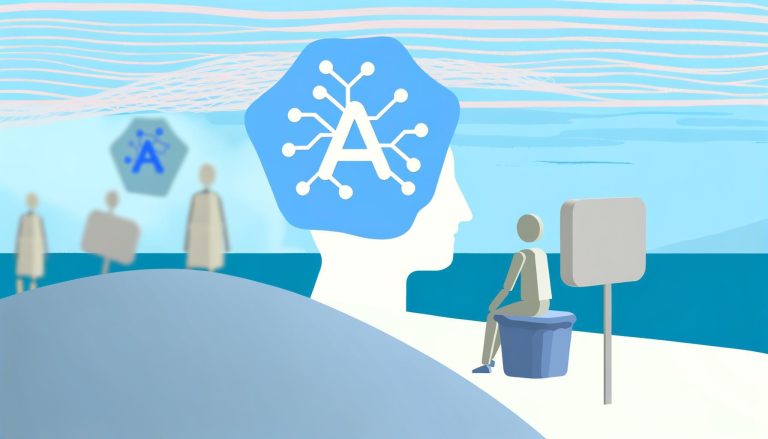Emotional intelligence, often abbreviated as EI or EQ, is the ability to understand and manage your emotions, as well as recognize and influence the emotions of others. As artificial intelligence (AI) continues to evolve, integrating emotional intelligence into AI can significantly enhance human-AI interactions, making them more empathetic and effective. This article explores the symbiotic relationship between emotional intelligence and AI, detailing how this integration can foster better relationships and provide practical tips for leveraging this dynamic.
Understanding Emotional Intelligence
Emotional intelligence is a crucial aspect of human interaction. It encompasses four major components:
- Self-Awareness: The ability to recognize and understand your own emotions.
- Self-Management: The ability to manage your emotions constructively.
- Social Awareness: The ability to understand the emotions of others.
- Relationship Management: The ability to build and manage healthy relationships.
The Role of AI in Enhancing Relationships
AI technology can analyze vast amounts of data and recognize patterns, offering a unique opportunity to improve emotional intelligence in human interactions. Here’s how:
1. Emotional AI (Affective Computing)
Affective computing is an area of AI focusing on developing systems that can detect and respond to human emotions. These systems analyze facial expressions, voice tones, and even physiological signals to understand emotional states. This technology has various applications, from improving customer service to enhancing mental health support.
2. AI in Education
AI-driven educational tools can offer personalized learning experiences by gauging students’ emotional responses. For example, an AI tutor can adjust its teaching methods based on a student’s frustration or enthusiasm, thereby creating a more effective and engaging learning environment.
3. AI in Customer Service
Integrating emotional intelligence into AI-driven customer service can lead to more satisfying interactions. Chatbots and virtual assistants equipped with EI can understand customer emotions and tailor their responses accordingly, resulting in a more empathetic and efficient service experience.
4. AI in Healthcare
In healthcare, AI can support emotional well-being by providing personalized mental health interventions. AI systems can monitor patients’ emotional states and offer timely support, making mental health care more accessible and responsive.
5. AI in Workplace Collaboration
AI tools can enhance workplace interactions by creating emotionally intelligent environments. For example, AI can analyze communication patterns within teams to identify areas for improvement, promoting better collaboration and understanding among colleagues.
6. AI and Personalized Coaching
AI-powered bots, like Zenora, can offer personalized coaching by tracking moods and habits, providing insights, and suggesting actionable steps for emotional growth and well-being. This kind of AI-driven support can foster better self-awareness and self-management, enhancing personal and professional relationships.
Benefits of Integrating Emotional Intelligence with AI
The integration of emotional intelligence into AI offers several advantages:
- Improved Human-AI Interaction: Emotional AI systems create more natural and satisfying interactions, making technology feel more supportive and intuitive.
- Enhanced Empathy: AI systems equipped with emotional intelligence can provide empathetic responses, improving customer satisfaction and patient care.
- Personalized Experiences: Emotional AI tailors interactions based on individual emotional states, creating more relevant and engaging experiences.
- Better Decision-Making: AI models that consider emotional context can make more informed and compassionate decisions.
- Increased Productivity: Emotionally intelligent AI can identify and mitigate emotional triggers in the workplace, fostering a more collaborative and productive environment.
Practical Tips for Leveraging Emotional AI
Incorporating emotionally intelligent AI into your personal and professional life can enhance your relationships and overall well-being. Here are some practical tips to help you get started:
1. Choose Emotionally Intelligent AI Tools
Seek out AI tools that prioritize emotional intelligence. These tools can offer more personalized and empathetic interactions, whether it’s a virtual assistant, customer service chatbot, or mental health app.
2. Foster Open Communication
Encourage open communication by using AI systems to understand and address emotional needs. For instance, employ AI-driven surveys to gauge employee sentiment, enabling you to address concerns proactively.
3. Integrate EI Training with AI Usage
Combine emotional intelligence training with AI usage to maximize the benefits. Encourage team members to develop their EI skills and use AI tools to support and reinforce these practices.
4. Utilize Mood and Habit Tracking
Use AI-powered mood and habit tracking tools to gain insights into your emotional patterns. These tools can help you identify triggers, understand your emotional responses, and develop strategies for managing your emotions effectively.
5. Personalize Learning and Development
Leverage AI-driven educational platforms that adapt to your emotional and learning needs. These platforms can offer customized content and support, helping you achieve your personal and professional goals more effectively.
6. Embrace Continuous Improvement
AI systems can provide ongoing feedback and insights to support your emotional growth. Use these insights to make continuous improvements in your emotional intelligence and relationship-building skills.
Conclusion
Integrating emotional intelligence with AI can revolutionize the way we interact with technology and enhance our relationships in profound ways. By leveraging emotionally intelligent AI tools, we can create more empathetic, personalized, and effective interactions, whether in customer service, education, healthcare, or the workplace.
Ultimately, the fusion of emotional intelligence and AI fosters a more compassionate and supportive environment, helping us build better relationships and improve our overall well-being. As AI continues to advance, its potential to enhance our emotional intelligence and relationship-building capabilities will only grow, offering exciting possibilities for the future.
For those seeking to track their emotional progress, manage habits, and set personalized goals, the Zenora app can be a valuable tool. With features designed to support emotional well-being and personal growth, Zenora can help you harness the power of emotional intelligence in your daily life.





